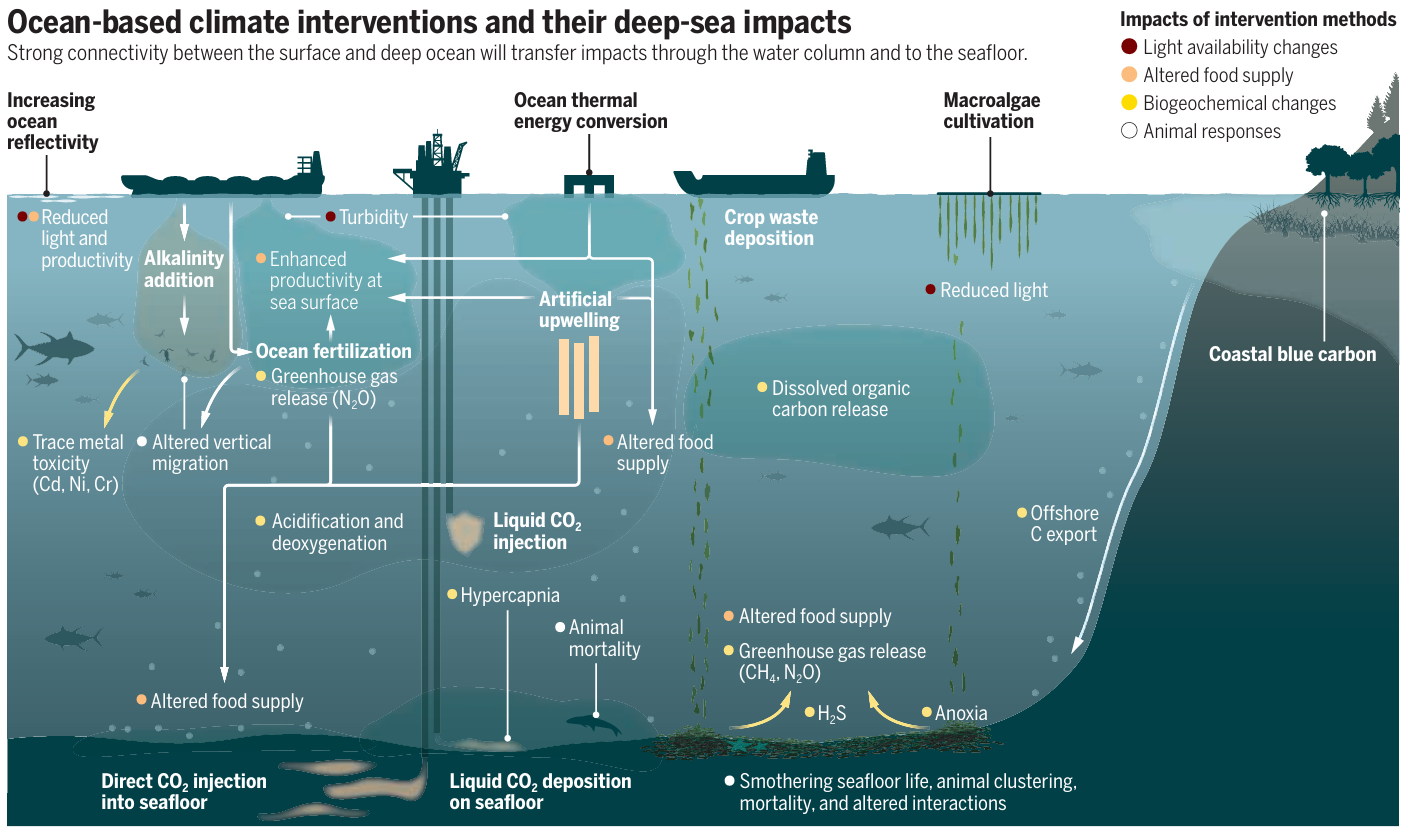March 9, 2023 | Science | Source |
Introduction: As climate interventions, such as geoengineering and carbon sequestration, are increasingly considered to combat global warming, their potential effects on deep-sea ecosystems need closer examination. A global research consortium of marine scientists from the US, Canada, Portugal, Italy, Germany, New Zealand, and China investigates how these climate interventions could impact deep-sea environments, which are often less understood compared to surface ecosystems.
Key findings: Some OBCIs (ocean-based climate interventions), like coastal blue carbon ecosystems, have been implemented, but most are still in the conceptual or pilot stage. Key approaches include enhancing marine photosynthesis to capture and sequester carbon in the deep ocean, ocean alkalinity enhancement (OAE) to remove CO2, and offshore renewable energy production.
However, OBCIs pose significant governance challenges, especially in international waters, and raise concerns about their impacts on deep-sea ecosystems. Deep-sea biodiversity could be affected by altered light fields, heat distribution, and nutrient cycling, which may disrupt food webs and carbon sequestration. Furthermore, changes in oxygen levels and carbon deposition could harm marine species and threaten commercially important fish stocks.
Governance frameworks, such as the United Nations Convention on the Law of the Sea (UNCLOS), regulate OBCIs, but gaps remain, particularly for interventions in international waters. Research on OBCI effectiveness and risks is urgently needed to ensure that these solutions do not harm marine ecosystems. An integrated, international framework is crucial for coordinating research, monitoring, and governance of OBCIs.

Figure | Ocean-based climate interventions and their deep-sea impacts.
Strong connectivity between the surface and deep ocean will transfer impacts through the water column and to the seafloor.





